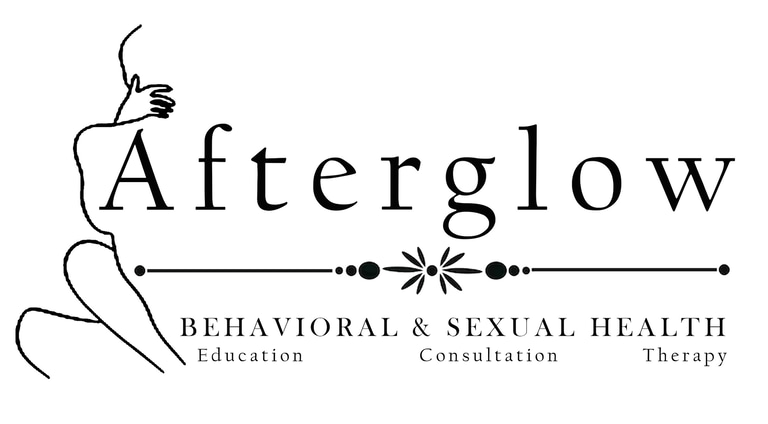Thanks, Aunt Carol: How Family Messed with Your Body Image (and What You Can Do About It)
Ever had your self-esteem wrecked by a relative with zero filter and a plate full of opinions? Welcome to the club. In this hilarious, heartfelt, and healing blog, we dive into how family comments—however well-meaning or wildly unnecessary—can shape your body image and quietly sabotage your sexual confidence. From Aunt Carol’s infamous “Are you really eating that?” to inherited guilt disguised as health advice, we unpack how to spot the family narratives stuck in your head, shut them down, and reclaim your body for joy, pleasure, and unapologetic confidence. It’s time to laugh, unlearn, and yes… let the Afterglow begin.
BODY IMAGE AND SEXTHE WABI-SABI BODY
Dr. Kent
7/3/20254 min read


Let’s take a deep breath and go ahead and say what most people are too polite to admit: family can seriously mess with your body image. Whether it’s the backhanded compliment at Thanksgiving, the childhood nickname that sounded suspiciously like a vegetable, or the way your parents talked about their own bodies, it’s likely that someone at your family table helped plant a few seeds of body doubt—and watered them regularly with judgment-flavored gravy.
It might’ve sounded like:
“Are you really going to eat all that?”
or
“You were so thin when you were younger.”
or the classic
“Wow, you’ve got your father’s legs.”
(Which—no offense to Dad—didn’t feel like a win when you were trying to buy prom shoes.)
And while some of this may have come from misguided attempts at love, the truth is: family dynamics have a huge impact on how we see our bodies. And that body image? It doesn’t just affect how we dress—it follows us into the bedroom, the mirror, and deep into the little voice in our heads that whispers, “not good enough.”
Meet Your Inner Family Reunion
When you're trying to feel sexy, confident, and embodied, the last thing you want is an inner monologue that sounds like a family reunion full of unsolicited opinions.
That moment when you’re finally relaxed and in a sensual moment, and suddenly your brain says, “Should your stomach be doing that?”—guess who trained that inner voice? Probably not your third-grade teacher. More likely, it's an echo of the comments, glances, or attitudes you absorbed from family members over years of family functions and awkward adolescence.
This is especially true if you grew up in a household where appearance was linked to value. If love, approval, or even basic praise came with a side of body critique, your brain learned early on that your shape was part of your worth.
And unfortunately, what gets learned in childhood doesn’t stay in childhood—it gets packed up in your metaphorical suitcase and dragged into adulthood. Right into your relationships. Right into your sex life.
The “Good Body” Myth, Now with Homemade Pie
For many people, body shame was served with a warm plate of family tradition. Whether it was being pressured to be thin, muscular, modest, or perpetually "camera-ready," the standards often came from the people who told you they loved you most. That creates a confusing emotional blueprint.
You’re taught:
Be confident—but don’t be vain.
Be attractive—but not too sexual.
Be healthy—but don’t talk about your needs.
Love yourself—but only if you look the way we approve of.
No wonder body image becomes a complicated mess. We learned to scan our bodies for flaws not because we were vain, but because we were trained to associate appearance with belonging. And if acceptance is conditional, then being seen—even intimately—can feel terrifying.
Healing Starts with Unlearning (Not a Juice Cleanse)
Here’s the therapeutic truth: healing your body image is less about fixing your body and more about questioning where those harmful beliefs came from. Spoiler alert: it wasn’t your thighs that were the problem—it was the script you were handed about them.
Start by identifying those internalized family messages. Write them down if you need to. Whose voice is it that criticizes your arms, your stomach, your laugh? And more importantly, what was happening in that person’s life that made them think their commentary was helpful or necessary?
This isn’t about blaming your family forever. It’s about understanding the origin of the noise so you can finally turn the volume down.
Because here’s the deal: you’re not obligated to carry those old beliefs into your future. You’re allowed to rewrite the script. You’re allowed to say, “Thanks, Aunt Carol, but I’m done viewing my body through your diet-culture lens.”
Sexual Confidence Isn’t Inherited—It’s Chosen
The good news? Body image issues passed down through family can stop with you. You can be the one who breaks the cycle. You can be the one who says, “My body is worthy of pleasure, joy, and confidence exactly as it is.”
When you begin to see your body through your own eyes—not the critical gaze of family, culture, or shame—you create room for authentic sexual expression. That means more presence during intimacy, less performance anxiety, and a deeper connection to your own pleasure.
Because sexual confidence isn’t about proving anything. It’s about showing up as yourself, without apology. And guess what? The sexiest people in the room are rarely the ones with the “best” bodies. They’re the ones who’ve decided their body deserves to be loved, touched, and enjoyed—period.
Final Thought: Return to Sender
If family criticism shaped your early body beliefs, consider this your permission slip to return that narrative to sender. You don’t need to carry someone else’s insecurities just because they came disguised as advice.
You are not your mom’s diet obsessions. You are not your cousin’s unsolicited fitness tips. You are not your uncle’s commentary on your weight during every single holiday meal.
You are your own—brilliant, breathing, beautifully imperfect. And the moment you choose to see yourself that way, something powerful happens.
You stop waiting for approval. You stop apologizing for your softness or your stretch marks or your appetites. And instead, you start living fully, loving deeply, and yes—feeling sexy anyway.
So go ahead. Redefine what sexy looks like. Reclaim your body from the family baggage. And when you do? Let the Afterglow begin.
Connect with us
© 2025. All rights reserved.
dr.kent.sexhealth@gmail.com


